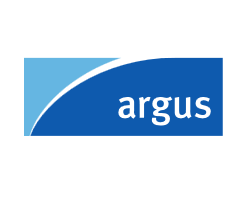Atlantic Coking Coal: U.S. Prices Come Down Further

January 17, 2018 - U.S. coking coal export prices fell further in the past week as fob Australia declines weighed heavily in the absence of much Atlantic buying activity, albeit some spot business was noted in southern Europe. That said, activity is expected to pick up soon as a wait-and-see approach to bookings in the fourth quarter has left some European buyers with open delivery slots that they will soon be keen to fill, according to market participants.
The Argus weekly fob Hampton Roads assessment for low-volatile coking coal is at $183.50/t today, down by $11.50/t from a week ago. The weekly fob Hampton Roads assessments for high-volatile type A (HVA) coking coal is at $195/t and the high-volatile type B (HVB) assessment is at $156.50/t – down on the week by $8/t and $7.50/t, respectively.
A southern European mill was in the market last week seeking mid-volatile coking coal, in response to which several U.S. producers and traders have put forward offers, market participants said. No deal had been confirmed by the time Argus went to press.
This follows a spot booking of U.S. material by a producer to another southern European mill in the week prior – part of its regular restocking cycle rather than any reaction to falling seaborne prices.
Metinvest is looking to sell an 80,000t March cargo of Affinity Pocahontas low-volatile coking coal from its U.S. subsidiary United Coal Company. The coal has ash content of 7.75pc, sulphur at 0.75pc, volatile matter of 17pc. CSR is calculated at 64.9, based on SGS testing.
Despite these pockets of activity, the European market as a whole remains "pretty dead", one seller said, and buyers are closely tracking falling Asia-Pacific marks. The Argus daily fob Australia assessment for premium hard low-volatile coking coal fell by another $5/t today to $190/t – a decline of $26.50/t since 2 January.
Atlantic coking coal demand has had a particularly sluggish start to the year – in part reacting to Asia-Pacific signals, but also hit by some extended steel plant outages in Europe and the slow return of key Brazilian buyers after their new year holiday.
Several market participants note that underlying demand is not the problem, pointing to Asia as well as the Atlantic. The sense of low demand is more a symptom of the bearish near-term outlook encouraging buyers to hold back, and European coking coal bookings are expected to pick up in February, after China's Lunar New Year holiday.
"There are still some open slots for coking coal in Europe for delivery in the coming months," a trader said, adding that "I think we will see some more enquiries for metallurgical products coming out of the woodwork over the next couple of weeks."
That said, some European mills say they are well-covered by term contracts for the next few months. "We are fully booked and do not plan to make any new commitments until May," one steelmaker said.
In the U.S. domestic market, producers confirmed some new spot sales of HVA and HVB to local mills and traders caught short. There are also some enquiries for mid-vols, although as with all grades availability is limited at this point.
A producer that is largely focused on domestic sales said it is currently finalising a deal which will book up its last remaining 2019 tonnes, adding that local prices appear to be holding firm despite the drop in the seaborne market.
The mild U.S. winter has allowed port and rail infrastructure to operate without any major disruptions so far, and market participants are hopeful that Norfolk Southern's installation of precision railroading may help improve coal transportation in the longer-term. A market participant noted that Norfolk Southern's recent increase in rates has deterred some rail traffic and as a result "demurrage charges have gone way down".

